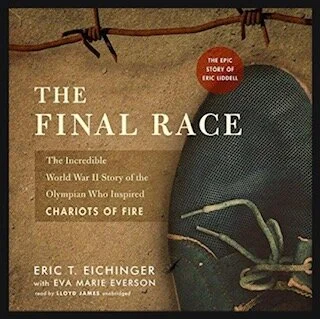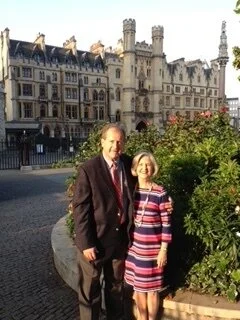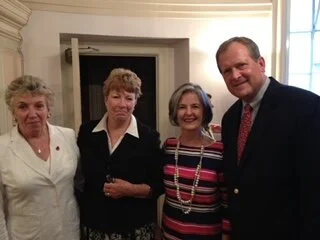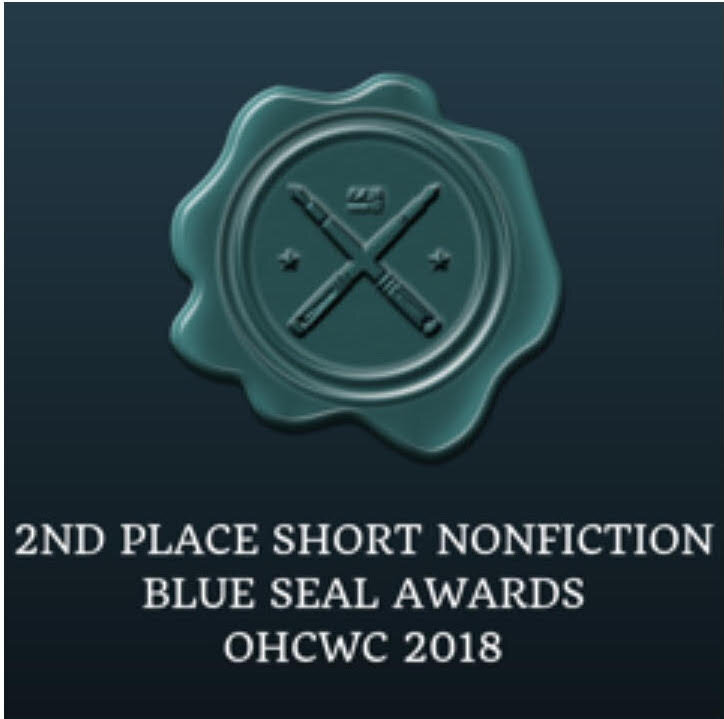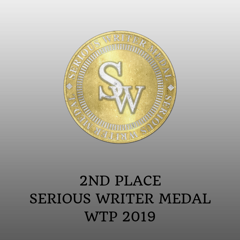As we approach the anniversary of his death, February 21, 1945, the life of Eric Liddell comes into focus.
London: The warm sunny English morning smiled down, and we made our way into the stately building across from Parliament. As delegates with Athletes in Action to the 2012 Olympics, Larry and I felt caught up in the euphoria of the global event. However, today’s gathering was not a sports competition, but rather The Legacy Breakfast for Olympians.
By the time the event concluded, I found myself with a handful of memorabilia, a collection of pens, and a souvenir teapot. But the greatest treasure was a conversation with two special ladies, the daughters of Eric Liddell. Attending as guests of honor, Patricia and Heather made the story of Scotland’s finest athlete, their father, come alive in an unforgettable way.
Following a lovely meal and formal program, the four of us spoke privately, and these women opened up to share in a warm and personal manner about the man they loved dearly. As if wanting us to know him, too, one sibling declared, “Even on Sunday he organized games for the children in the World War II prison camp.” Her words stayed with me and created a longing to know more about Eric Liddell—not just as an athlete—but as a missionary.
That Olympic–morning–longing recently found satisfaction as I read the book, The Final Race, by Eric T. Eichinger and Eva Marie Everson. Eichinger and Everson take the reader on the other side of the world to run with Eric as husband, father, colleague, and prisoner of war. Indeed, this man—with his whose whole being dedicated to God, his family, and China—consistently lived out his bedrock conviction:
“Surrender means the end of the great rebellion of our wills.”
Thanks to this author duo, we possess a collection of gems in the testimonies of those who spoke of Eric after God called him Home.
Fellow missionary colleague Annie said, “One could hardly argue with his unique skill set and his methods (in ministry) … were never complicated, but simple, clear and direct like his own character. … He was an evangelist to the villages. He didn’t stay put. He was out most of the time.” She continued, “He was an extraordinarily fearless person. He had this awareness of Jesus being with him all the time. And his favorite expression: A God-controlled life.”
A colleague and close friend A. P. Cullen revealed: “Given these two qualities—an unflinching purpose and a finely sensitive conscious—add to them an ideal of a life completely dedicated to the service of God and men, and you have the secret of Eric Liddell’s career.”
Mission leader Reverend Smith said of Eric, “For a year we had the privilege of his sharing our home. I never saw Eric angry. I never heard him say a cross or unkind word. He just went about doing good. And he did so unobtrusively, so self-effacingly, and so naturally, that one just took it for granted that Eric was just like that. Because day by day he kept an early morning tryst with his Lord. The pattern of his daily living was so little marred by false because he offered up, quite simply, each smallest thing to Christ. He was Christ’s man.”
Stephen Metcalf, who became a lifelong missionary to Japan, was a young person in the same camp where Eric was imprisoned. He remembered the lessons Eric taught him and the young people who lived alongside him: “Love your enemies, he told them. Pray for the Japanese guards. Pray for them that persecute you.”
And in the end…
Suffering from an inoperable brain tumor, His last words were to his nurse. “Annie, he said, it’s complete surrender to God.” With that Eric Liddell faded from consciousness … Later that night (February 21, 1945) Scotland’s greatest athlete crossed the finish line of his earthly life and into his heavenly home.” He had completed the race.
Living With Eternal Intentionality®
What about this man makes you want to walk more closely with Jesus?
In what way do you think his athletic career prepared him to follow Christ with such fervor?
Standing on a train station platform as he embarked on his journey to China, Eric blurted out his personal credo, “Christ for the world for the world needs Christ.” How does this find meaning in the day in which you and I live?

